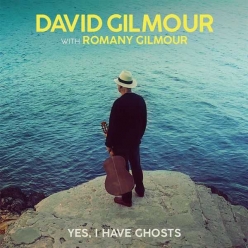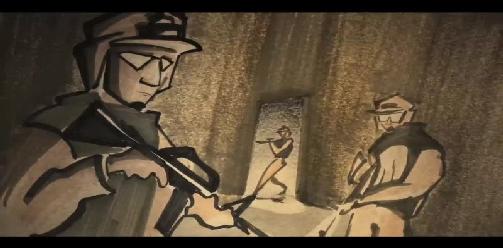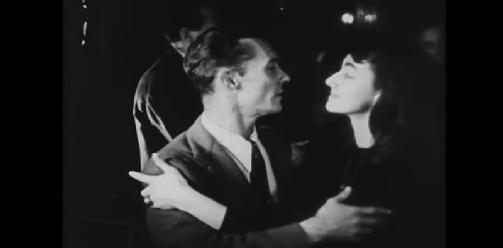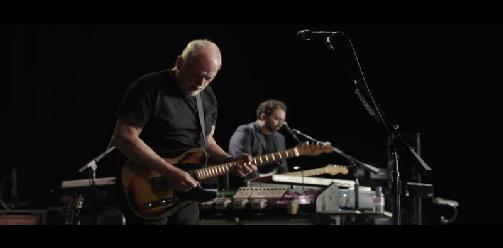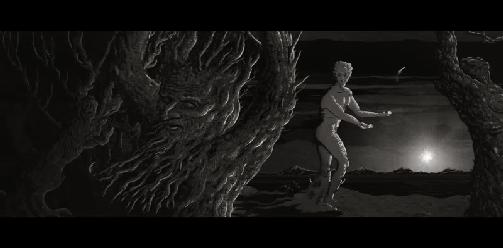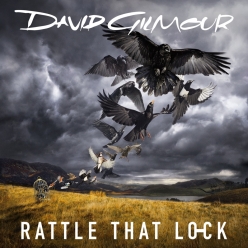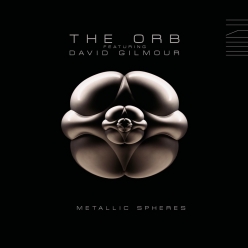Biography
David Jon Gilmour, CBE (born 6 March 1946), is an English musician, singer, songwriter and multi-instrumentalist. He is best known for his work as the guitarist and co-lead vocalist of the progressive rock band Pink Floyd. It is estimated that by 2012 the group had sold over 250 million records worldwide, including 75 million units sold in the United States.
In addition to his work with Pink Floyd, Gilmour has produced a variety of artists, for example the Dream Academy, and has had a solo career. In 2005, Gilmour was made a Commander of the Order of the British Empire (CBE) for his services to music. He was awarded with the Outstanding Contribution title at the 2008 Q Awards. In 2011, Rolling Stone magazine ranked him number 14 in their list of the greatest guitarists of all time.
Contents 1 Early life 2 Pink Floyd 3 Musical style 4 Solo projects 4.1 2000s 4.2 2010s 5 Equipment 5.1 Other electric guitars 5.2 Acoustics 5.3 Steel guitar 5.4 Bass guitars 5.5 Fender Black Strat Signature Stratocaster 6 Personal life 7 Discography 8 Notes 9 Citations 10 Sources 11 Further reading 12 External links Early lifeDavid Jon Gilmour was born on 6 March 1946, in Cambridge, England. His father, Douglas Gilmour, eventually became a senior lecturer in zoology at the University of Cambridge, and his mother, Sylvia (born Wilson), was a teacher and film editor who later worked for the BBC. At the time of Gilmour's birth they lived in Trumpington, Cambridgeshire, but in 1956 after several relocations the couple moved their family to Grantchester Meadows.
Gilmour's parents encouraged him to pursue his interest in music, and in 1954 he bought his first single, Bill Haley's "Rock Around the Clock". His enthusiasm for music was stirred the following year by Elvis Presley's "Heartbreak Hotel", and later "Bye Bye Love" by the Everly Brothers piqued his interest in guitar. He then borrowed one from his neighbour, but never gave it back. Soon afterward, he started teaching himself to play using a book and record set by Pete Seeger. At age 11, Gilmour began attending the Perse School on Hills Road, Cambridge, which he "didn't enjoy". While there he met future Pink Floyd guitarist Syd Barrett and bassist Roger Waters, who attended Cambridgeshire High School for Boys, which was also situated on Hills Road.
In 1962, Gilmour began studying A-Level modern languages at Cambridge Technical College. Despite not finishing the course, he eventually learnt to speak fluent French. Barrett was also a student at the college, and he spent his lunchtimes practicing guitar with Gilmour. In late 1962, Gilmour joined the blues-rock band Jokers Wild. They recorded a one-sided album and a single at Regent Sound Studio, in London, but only fifty copies of each were made. In August 1965, Gilmour busked around Spain and France with Barrett and some other friends, performing songs by the Beatles. They were not successful, getting arrested on one occasion and living a virtually hand-to-mouth existence, which resulted in Gilmour requiring treatment in a hospital for malnutrition. He and Barrett later trekked to Paris, where they camped outside the city for a week and visited the Louvre. During that time Gilmour worked in various places, most notably as the driver and assistant for fashion designer Ossie Clark.
Gilmour travelled to France in mid-1967 with Rick Wills and Willie Wilson, formerly of Jokers Wild. The trio performed under the band name Flowers, then Bullitt; they were not successful. After hearing their uninspired covers of current chart hits, club owners were reluctant to pay them, and soon after their arrival in Paris, thieves stole their equipment. In May, Gilmour briefly returned to London in search of new gear. During his stay, he watched Pink Floyd record "See Emily Play" and was shocked to find that Barrett did not seem to recognise him. When Bullitt returned to England later that year, they were so impoverished that their tour bus was completely empty of petrol and they had to push it off the ferry.
Pink FloydIn late December 1967, drummer Nick Mason approached Gilmour and asked him if he would be interested in joining Pink Floyd. He accepted and soon afterward became their fifth member; they initially intended to continue with Barrett as a nonperforming songwriter. One of the group's business partners, Peter Jenner, commented: "The idea was that Dave would ... cover for Barrett's eccentricities and when that got to be not workable, Syd was just going to write. Just to try to keep him involved". By March 1968, working with Barrett had become too difficult, so Pink Floyd met with business partners Jenner and Andrew King to discuss the situation. During the meeting, Barrett agreed to leave the band and the others committed to moving on without him. Waters later admitted: "He was our friend, but most of the time we now wanted to strangle him". Jenner and King, who believed Barrett to be the creative genius of the band, decided to represent him and end their relationship with Pink Floyd.
After Barrett's departure, Gilmour sang much of Pink Floyd's lead vocals; Waters and keyboard player Rick Wright also occasionally sang lead. After the successes of The Dark Side of the Moon and Wish You Were Here, Waters took greater control of the band, writing and singing lead on most of Animals and The Wall. Wright was fired during the sessions for The Wall, and the relationship between Gilmour and Waters would further deteriorate during the making of the eponymous film, and later during recording sessions for The Final Cut. The last band performance of The Wall took place on 16 June 1981, at Earls Court, London; it was Pink Floyd's last appearance with Waters until the band's reunion on 2 July 2005, at the Live 8 concert in London's Hyde Park, 24 years later.
Gilmour performing with Pink Floyd in the mid-1970sBy the late 1970s, Gilmour began to think that his musical talents were being underused by Pink Floyd, so in 1978 he channelled his ideas into the eponymous solo album, David Gilmour, which showcased his guitar playing and songwriting skills. Music written during the finishing stages of the album, but too late to be used, were incorporated into song by Waters, which became "Comfortably Numb", which was included on The Wall. The negative atmosphere surrounding the creation of The Wall album and subsequent film, compounded by The Final Cut 's virtually being a Roger Waters solo album, led Gilmour to produce his second solo album, About Face, in 1984. He used it to express his feelings about a range of topics, from the murder of John Lennon to his relationship with Waters. He has since admitted that he also used the album to distance himself from Pink Floyd. He toured Europe and the US along with support act the Television Personalities, who were promptly dropped from the line-up after Dan Treacy unwisely revealed Syd Barrett's address on stage. Mason also made a guest appearance on the UK leg of the tour, which despite some cancellations eventually turned a profit. When he returned from touring, Gilmour played guitar with a range of artists, and also produced the Dream Academy, who had a top ten hit with "Life in a Northern Town".
In 1985, Waters declared that Pink Floyd were "a spent force creatively". Gilmour and Mason responded with a press release stating that Waters had quit the band and they intended to continue without him. Gilmour assumed full control of the group and produced A Momentary Lapse of Reason in 1987 with some contributions from Mason and Richard Wright. Wright officially rejoined the band after the release of the album for a lengthy world tour and helped create 1994's The Division Bell. Gilmour explained: "I had a number of problems with the direction of the band in our recent past, before Roger left. I thought the songs were very wordy and that, because the specific meanings of those words were so important, the music became a mere vehicle for lyrics, and not a very inspiring one. Dark Side of the Moon and Wish You Were Here were so successful not just because of Roger's contributions, but also because there was a better balance between the music and the lyrics than there has been in more recent albums. That's what I'm trying to do with A Momentary Lapse of Reason; more focus on the music, restore the balance." In 1986, Gilmour purchased the houseboat Astoria, which is moored on the River Thames near Hampton Court, and transformed it into a recording studio. The majority of the two most recent Pink Floyd albums, as well as Gilmour's 2006 solo release On an Island, were recorded there.
On 2 July 2005, Gilmour played with Pink Floyd—including Roger Waters—at Live 8. The performance caused a temporary sales increase of Pink Floyd's album Echoes: The Best of Pink Floyd. Gilmour donated all of his resulting profits to charities that reflect the goals of Live 8 saying: "Though the main objective has been to raise consciousness and put pressure on the G8 leaders, I will not profit from the concert. This is money that should be used to save lives." Shortly after, he called upon all artists experiencing a surge in sales from Live 8 performances to donate the extra revenue to Live 8 fund-raising. After the Live 8 concert, Pink Floyd were offered £150 million to tour the United States, but the band turned down the offer.
On 3 February 2006, he announced in an interview with the Italian newspaper La Repubblica that Pink Floyd would most likely never tour or write material together again. He said: "I think enough is enough. I am 60 years old. I don't have the will to work as much any more. Pink Floyd was an important part in my life, I have had a wonderful time, but it's over. For me it's much less complicated to work alone."
Regarding agreeing to play at Live 8, he said: "There was more than one reason, firstly to support the cause. The second one is the energy-consuming and uncomfortable relationship between Roger and me that I was carrying along in my heart. That is why we wanted to perform and to leave the trash behind. Thirdly, I might have regretted it if I declined." On 20 February 2006, Gilmour commented again on Pink Floyd's future when he was interviewed by Billboard.com, stating, "Who knows? I have no plans at all to do that. My plans are to do my concerts and put my solo record out."
In December 2006, Gilmour released a tribute to Syd Barrett, who had died on 7 July of that year, in the form of his own version of Pink Floyd's first single "Arnold Layne". Recorded live at London's Royal Albert Hall, the single featured versions of the song performed by Richard Wright and special guest artist David Bowie. The single peaked on the UK Top 75 singles chart at number nineteen.
Since their Live 8 appearance in 2005, Gilmour has repeatedly said that there will be no Pink Floyd reunion. With the death of Pink Floyd keyboardist Richard Wright in September 2008, another reunion of the core group members became impossible. After his death, his surviving former bandmates praised him for his influence on the sound of Pink Floyd. Gilmour said of Wright: "In the welter of arguments about who or what was Pink Floyd, Rick's enormous input was frequently forgotten. He was gentle, unassuming and private but his soulful voice and playing were vital, magical components of our most recognised Pink Floyd sound. Like Rick, I don't find it easy to express my feelings in words, but I loved him and will miss him enormously. I have never played with anyone quite like him."
Musical styleGilmour is primarily regarded as a lead guitarist. His own solo style is often characterised by blues-influenced phrasing, expressive note bends and sustain. In 2011, Gilmour was rated the 14th greatest guitarist by Rolling Stone magazine. In January 2007, Guitar World readers voted Gilmour's solos, "Comfortably Numb", "Time" and "Money" into the top 100 Greatest Guitar Solos ("Comfortably Numb" was voted the 4th, "Time" was voted the 21st and "Money" was voted the 62nd greatest solo of all time).
Early in his career with Pink Floyd, Gilmour played a multitude of Fender Stratocasters. He recorded one of his guitar solos, for "Another Brick in the Wall, Part 2", in one take using no editing or mixing using a 1955 Gibson Les Paul Gold Top guitar equipped with P-90 pick-ups. In 1996, Gilmour was inducted into the Rock and Roll Hall of Fame as a member of Pink Floyd. Gilmour's solo on "Comfortably Numb" was voted as one of the greatest guitar solos of all time in several polls by listeners and critics.
Although mainly known for his guitar work, Gilmour is also a proficient multi-instrumentalist. He also played bass on a portion of Pink Floyd tracks, keyboards, synthesiser, banjo, lap steel, mandolin, harmonica, and drums on the Syd Barrett solo track "Dominoes". He can also play the saxophone.
Many critics have been very favourable towards Gilmour and his style, music critic Alan di Perna has praised Gilmour's guitar work as being an integral element of Pink Floyd's sound. Rolling Stone ranked him number 14 in their "100 Greatest Guitarists of All Time" list and di Perna described him as the most important guitarist of the 70's, Perna also referred to Gilmour as "the missing link between Hendrix and Van Halen." In a 2006 interview with Gilmour, he commented on his playing technique: " fingers make a distinctive sound ... aren't very fast, but I think I am instantly recognisable ... The way I play melodies is connected to things like Hank Marvin and the Shadows".
In 2006, a writer for Guitar World, Jimmy Brown, described Gilmour's playing style as "characterised by simple, huge-sounding riffs; gutsy, well-paced solos; and rich, ambient chordal textures". According to Brown, Gilmour's solos on "Money", "Time" and "Comfortably Numb" "cut through the mix like a laser beam through fog". Brown described the "Time" solo as "a masterpiece of phrasing and motivic development ... Gilmour paces himself throughout and builds upon his initial idea by leaping into the upper register with gut-wrenching one-and-one-half-step 'over bends', soulful triplet arpeggios and a typically impeccable bar vibrato." Brown described Gilmour's sense of phrasing as intuitive, singling it out as perhaps his best asset as a lead guitarist. Gilmour explained how he achieved his signature tone: "I usually use a fuzz box, a delay and a bright EQ setting ... singing sustain ... you need to play loud—at or near the feedback threshold. It's just so much more fun to play ... when bent notes slice right through you like a razor blade."
Solo projects Gilmour performing in Brussels in 1984, on his About Face tourGilmour has recorded four solo albums, all four of which charted in the US Top 40: 2006's On an Island peaked at number 6 in 2006, 2008's Live in Gdansk peaked at number 26, his 1978 self-titled solo debut peaked at number 29 in 1978 and 1984's About Face peaked number 32 in 1984.
Taking time off from Pink Floyd's schedule, Gilmour also took up various roles as a producer, sideman and even concert sound engineer for a wide variety of acts which included former bandmate Syd Barrett, Unicorn, Kate Bush, Paul McCartney, Berlin, John Martyn, Arcadia, Grace Jones, Tom Jones, Elton John, Eric Clapton, B. B. King, Seal, Sam Brown, Jools Holland, Bob Dylan, Pete Townshend, the Who, Supertramp, Levon Helm, Robbie Robertson, Alan Parsons, Peter Cetera and various charity groups among others.
In 1985, Gilmour was a member of Bryan Ferry's band. He played on Ferry's album Boys and Girls, as well as the song "Is Your Love Strong Enough" for the US release of the Ridley Scott-Tom Cruise film Legend. A music video for the latter was created, incorporating Ferry and Gilmour into footage from the film (released as a bonus on the 2002 "Ultimate Edition" DVD release). Later that year, Gilmour played with Ferry at the London Live Aid concert; his first collaboration with Ferry's keyboard player Jon Carin, later to tour with Pink Floyd.
2000sIn 2001 and 2002, Gilmour performed a total of six acoustic solo concerts in London and Paris, along with a small band and choir, which was documented on the In Concert release. On 24 September 2004, he performed a three-song set at the Strat Pack concert at London's Wembley Arena, marking the 50th anniversary of the Fender Stratocaster guitar.
Gilmour in performance, Frankfurt 2006On 6 March 2006, Gilmour's 60th birthday, he released his third solo album, On an Island. It debuted at number 1 in the UK charts, and reached the top five in Germany and Sweden. The album earned Gilmour his first US top-ten as a solo artist, reaching number six in Billboard 200. Produced by Gilmour along with Phil Manzanera and Chris Thomas, the album features orchestrations by renowned Polish composer Zbigniew Preisner, and lyrics principally written by Polly Samson. The album features David Crosby and Graham Nash performing background vocals on the title track, Robert Wyatt on cornet and percussion, and Richard Wright on Hammond organ and vocals. Other contributors include Jools Holland, Georgie Fame, Andy Newmark, B. J. Cole, Chris Stainton, Willie Wilson, Rado ‘Bob’ Klose on guitar and Leszek Możdżer on piano. The album also features Gilmour's debut with the saxophone. Gilmour toured Europe, US and Canada from 10 March to 31 May 2006 to promote On an Island. There were 10 shows in the US and Canadian leg of the tour. Pink Floyd alumnus Richard Wright, and frequent Floyd collaborators Dick Parry, Guy Pratt and Jon Carin also accompanied him on the tour. More shows took place in Europe from July to August in 2006. In a press release to promote the tour, Gilmour stated: "I'm rather hoping that with this tour announcement, people will believe me when I say, honestly, this is the only band I plan to tour with!"
On 10 April 2006, On an Island was certified platinum in Canada, with sales of over 100,000 copies. A video recording of a show from Gilmour's solo tour, titled Remember That Night – Live at the Royal Albert Hall, was released on 17 September 2007. The double DVD, directed by David Mallet, contains over five hours of footage, including an on-the-road documentary and guest appearances by David Bowie and Robert Wyatt. The final show of David Gilmour's On an Island tour took place at the Gdańsk Shipyard on 26 August 2006. The concert was held before a crowd of 100,000, and marked the twenty-sixth anniversary of the founding of the Solidarity trade union. The show was recorded, resulting in a live album and DVD release: Live in Gdańsk. For the occasion Gilmour performed with an orchestra, using the 38-piece string section of the Polish Baltic Philharmonic Orchestra, conducted by Zbigniew Preisner.
On 25 May 2009, he participated in a concert at the Union Chapel in Islington, London. The concert was part of the 'Hidden Gigs' campaign against hidden homelessness, which is organised by Crisis, a UK-based national charity campaigning against homelessness. In the concert he collaborated with the Malian musicians Amadou and Mariam. On 4 July 2009, he joined his friend Jeff Beck onstage at the Royal Albert Hall. David and Jeff traded solos on Jerusalem and closed the show with Hi Ho Silver Lining. In August 2009, he released an online single, Chicago – Change the World, on which he sang and played guitar, bass and keyboards, to promote awareness of the plight of Gary McKinnon. A re-titled cover of the Graham Nash song Chicago, it featured Chrissie Hynde and Bob Geldof, plus McKinnon himself. It was produced by long-time Pink Floyd collaborator Chris Thomas. A video was also posted on-line.
2010sOn 11 July 2010, Gilmour gave a performance for the charity Hoping Foundation with Roger Waters in Oxfordshire, England. The performance was presented by Jemima Khan and Nigella Lawson, and according to onlookers, it seemed that Gilmour and Waters had ended their long-running feud, laughing and joking together along with their respective partners. Waters subsequently confirmed on his Facebook page that Gilmour would play "Comfortably Numb" with him during one of his shows on his upcoming The Wall Live tour – Gilmour performed the song with Waters on 12 May 2011 at The O2, London and, with Nick Mason, played with the rest of the band on "Outside the Wall" at the conclusion of the show.
Gilmour released an album with the Orb in 2010 entitled Metallic Spheres, on which he co-wrote every track and their subsequent parts, and produced, played guitar and sang. In 2011, Rolling Stone placed Gilmour at number 14 in a list of the hundred greatest guitarists of all time.
Graham Nash and Phil Taylor, Gilmour's guitar technician have both stated that Gilmour is currently working on a new studio album which should be completed during 2014 and will feature Nash along with his long-time collaborator David Crosby. Gilmour's wife, Polly Samson has also stated via her Twitter account that she has been writing lyrics for her husband.
On 29 October 2014, David Gilmour told Rolling Stone magazine that his new album was «coming along very well», that "there's a few months work in it yet" and that he's "hoping to get it out this following year" i.e. 2015. Besides, in addition to the new album, David Gilmour confirmed that there will also be a tour, but not a massive 200-date tour, more like an "old man's tour", David adding: "There haven't been many discussions about the tour. But places like Radio City Music Hall sound like the right sort of vibe for me.»" David confirmed that a Pink Floyd tour supporting their new album The Endless River is not going to happen, stating: "Without , that's kind of impossible."
On 4 March 2015, David Gilmour announced a tour of the UK and Europe planned from September to October 2015, his first live tour in nine years, coinciding with the release of his fourth solo studio album. On 16 July 2015 the first tour dates in 10 years were announced for North America for March to April 2016.
On 6 June 2015, Gilmour previewed his fourth solo studio album at the Borris House Festival of Writing And Ideas in Carlow, Ireland and revealed that it will be titled Rattle That Lock.
Equipment Gilmour playing a Fender Stratocaster in 1984Some of the equipment Gilmour has used on his solo or Pink Floyd records and tours include many versions of the Fender Stratocaster, several Les Paul, and other guitar models.
Others include:
Cream coloured 1957 reissue Stratocaster. This guitar was used on Gilmour's 1984 solo tour to support the About Face album and also during the early part of the 1987–1990 Pink Floyd tour. During the 1994 Pink Floyd tour it was used as a spare guitar. During Pink Floyd's Live 8 set sidesman Tim Renwick was seen playing it. It has the same EMG setup as his red '57 Reissue model. After it was used for Live 8, the neck from the cream Stratocaster was transferred to Gilmour's main black Stratocaster. '57 Lake Placid Blue. (Serial number #0040). This guitar was used during The Wall recording sessions. Sonic Blue "Eric Clapton" signature Stratocaster with Fender Lace Sensor pick-ups given to Gilmour by Fender Musical Instruments Corporation. It was used on an episode of French and Saunders. Incidentally Mark Knopfler used Gilmour's EMG red Strat in the same sketch. Double-neck Stratocaster. Custom made body by guitar builder Dick Knight and using standard Fender necks. It was used in the early 1970s. 1959 sunburst Stratocaster body with a 1963 neck with a rosewood fingerboard. This guitar was given to Gilmour by Steve Marriott. Gilmour did not like the guitar enough to use it for very long but did like the neck better than the original one on his black Stratocaster and the two were switched. The sunburst model was used as a spare and for slide guitar in subsequent years. White with white pickguard. Used in the late 1960s. Received as a gift from the rest of the band. Gilmour used a Stratocaster equipped with the EMG SA pick-up system on the 'Momentary Lapse of Reason' recording. Telecaster blonde body with white pickguard. Used on the On an Island tour. '52 Butterscotch Reissues with black pickguard. Used between 1987 and 1995. The first guitar was tuned in Dropped D rather than a standard tuning and was used for "Run Like Hell". The second served as a backup instrument and had a regular guitar tuning. Gilmour used this guitar for Astronomy Domine. '59 Custom Telecaster with sunburst ash body, white binding on the body, rosewood fingerboard, and a white pickguard. A Gibson Humbucker was briefly placed in the neck position but this was removed before it was used on the Animals' recording sessions. Last seen at rehearsals during the On an Island tour. '61 Telecaster used during The Wall recording sessions. Also used live in the post-Waters era for "Run Like Hell". Last seen on the Syd Barrett memory concert in 2007. 1960s brown-faded body. Used in the late 1960s. 1960s blonde ash body with white pickguard. This was Gilmour's main guitar during his first year with Pink Floyd, but it was lost by an airline company in 1968, prompting Gilmour to buy the brown-faded Telecaster. Esquire '55 Sunburst body a.k.a. "The workmate Tele". Neck pick-up added. Used at the recording sessions for his first solo album and seen on the back cover of his second solo album, and used in The Wall recording sessions and subsequent tour. Also seen when Gilmour performed with Paul McCartney in the late 1990s, at the Jerry Leiber and Mike Stoller tribute concert and at the AOL Elvis Tribute on the song Don't both in 2001. Other electric guitarsAlong with the Fender models, Gilmour has also used a Gibson Les Paul goldtop model with P-90 pick-ups during recording sessions for The Wall and A Momentary Lapse of Reason. It was used for the guitar solo on 'Another Brick in the Wall, Part 2'.
Gilmour also plays a Gretsch Duo-Jet, a Gretsch White Falcon, and a "White Penguin". He played a Bill Lewis 24-fret guitar during the Meddle and Dark Side of the Moon recording sessions, and a Steinberger GL model which was his main guitar during A Momentary Lapse of Reason recording sessions.
AcousticsGilmour has used many different acoustic guitars throughout his career including a Gibson "Chet Atkins" classical model, and a Gibson J-200 Celebrity acoustic guitar. Gilmour used several Ovation models including a Custom Legend 1619-4, and a Custom Legend 1613-4 nylon string guitar, both during The Wall recording sessions. Martin models used include a D-35, and a D12-28 12-string. Gilmour's large acoustic collection also includes many models from Taylor, Takamine and Guild.
Steel guitar Gilmour playing lap steel guitar, 26 January 1977Throughout his recording career Gilmour has added a different element to his guitar style with his use of steel guitars. A pair of Jedson pedal steel guitars were used frequently in the early 1970s. Originally purchased from a pawn shop while Gilmour was in Seattle in 1970, the Jedson was used during recording of "One of These Days" from "Meddle" and "Breathe" and "Great Gig in the Sky" from Dark Side of the Moon. Gilmour also owns a Fender Deluxe lap steel, which he used during The Division Bell tour in 1994. Gilmour also owns a Champ lap steel model. Along with the Fender steel models Gilmour has also used: a Gibson EH150, and two Jedson models: one red (1977-tuned D-G-D-G-B-E for Shine On You Crazy Diamond, Parts 6–9, 1987–2006: Tuned E-B-E-G-B-E for High Hopes) and one blonde. He also uses a ZB steel model. Gilmour played pedal steel guitar on the album Blue Pine Trees by Unicorn.
Bass guitars This section of a biographical article needs additional citations for verification. Please help by adding reliable sources. Contentious material about living persons that is unsourced or poorly sourced must be removed immediately, especially if potentially libelous or harmful. (July 2014)
